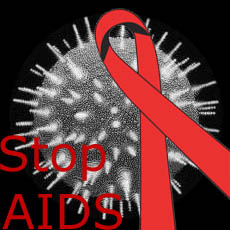HIV Vaccines Show Early Promise genre: Gaylingual & Little Red Ribbon-Hood

The search for a vaccine for HIV has been underway for over two decades with little success although scientists have continued to better understand how the virus is able to defeat the body’s immune system. Presently, there are numerous vaccines in development that seek to defeat the virus with a variety of novel approaches. News about recent vaccine trials just released offer promising data suggesting they have achieved notable immune responses. The first vaccine data was reported at a four day vaccine conference in Amsterdam. Read the full article here.
A Swedish HIV vaccine study conducted by researchers at Karolinska Institutet (KI), Karolinska University Hospital and the Swedish Institute for Infectious Disease Control (SMI) has produced surprisingly good results.
Over 90 per cent of the subjects in the phase 1 trials developed an immune response to HIV. "Never has such a good result been seen with a vaccine of this type," says Professor Eric Sandström, Chief Physician at Karolinska University Hospital.
The vaccine is what is known as a genetic vaccine, which uses parts of the virus DNA to stimulate the rapid endogenous production of the proteins for which the injected DNA codes.
The trial subjects were vaccinated on three occasions with this vaccine using a needle-free method of injection. In order to enhance the effect, the researchers also gave the subjects a fourth dose of a vaccine in which parts of the HIV virus DNA had been integrated into another virus (vaccinia = the cowpox virus). This vaccine-based HIV vaccine is produced by the USA’s National Institutes of Health and was donated for use in this Swedish study.
“Our vaccine is designed in such a way that it’s able to protect against many of the circulating HIV types in Africa and the West," says Professor Britta Wahren at the SMI/KI.
The vaccine was delivered with a new needle free process that uses an air blast to inject the vaccine into the skin of the recipient. The process is designed to expose the vaccine over a wider area in order to involve more of the body’s immune mechanisms. The results seem to suggest that the delivery system may have been beneficial.
A second article reports on the early results of another vaccine candidate. Read the full article here.
SAN DIEGO, Aug. 31 /PRNewswire-FirstCall/ -- Vical Incorporated (Nasdaq: VICL - News) announced today that a "prime-boost" vaccine regimen tested in 40 HIV-uninfected subjects in a National Institutes of Health (NIH) sponsored Phase 1 clinical trial was safe and well-tolerated, and was highly effective in inducing T-cell immune responses with multiple functions that may be important for controlling HIV infection. The trial involved priming an immune response with three doses of a plasmid DNA vaccine, based on Vical's proprietary DNA delivery technology, and boosting the response with a single dose of adenoviral vector vaccine given at a later date.
The vaccine incorporates HIV genetic material from the three most globally important HIV subtypes, clades A, B and C, which are involved in about 85 percent of all HIV infections around the world. The same prime-boost vaccine combination is being tested in 480 HIV-uninfected subjects through a multinational Phase 2 trial initiated in October 2005. The combination also is being tested in 15 HIV-infected subjects receiving highly active antiretroviral therapy (HAART) through a Phase 1 trial initiated in August 2006.
The fact that the vaccine is also being tested on HIV positive individuals offers hope that a vaccine could provide therapeutic benefit to those already infected with the virus. It remains unclear if such vaccines would allow patients to discontinue medications or would serve to bolster the patient’s immune response in the management of the disease in order to prevent the progression to AIDS.
The news from the conference is some of the first good vaccine news following the results from the largest trial of the ALVAC vaccine. The disappointing ALVAC vaccine results led to the cancellation of a planned large scale trial as well as further doubt that a viable vaccine was feasible. Nonetheless, it appears that some of the new approaches will at least provide needed clues into the mechanisms needed to eventually defeat the virus. Hopefully one of the new candidates will provide the long awaited outcome.
Post a comment